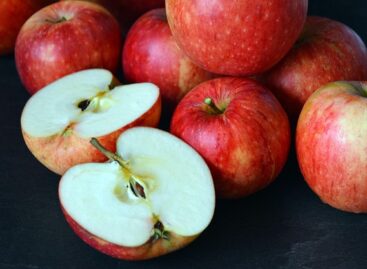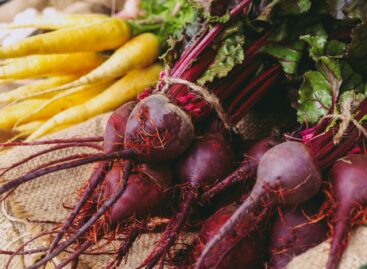Lecsó is nearly a luxury dish now
Summer in Hungarian households inevitably features the iconic dish, “lecsó,” yet the overall price increase in the food industry has led to significant rises in ingredient costs. According to Agrárszektor, over the past five years, the average annual prices of tomatoes and peppers have continuously escalated, a trend also observed globally.

The FruitVeB Hungarian Fruit and Vegetable Interprofessional Organization and Product Council disclosed that the average annual prices of tomatoes and peppers have been consistently rising over the last five years. The prices of these vegetables have increased significantly in recent times, and by now, there are no significant differences in annual prices between Dutch and Hungarian tomatoes.
In Hungary, vegetable cultivation encompasses more than 3,000 hectares, including controlled cultivation. The controlled cultivation of peppers and tomatoes is substantial, with controlled peppers primarily meeting the quality requirements of the fresh market. Thanks to recent developments in the last few years, Hungary’s controlled cultivation area has increased, with more than 30 thermal wells drilled during this period.
The Hungarian Product Council stated that high-quality products for the fresh market are primarily sourced from controlled cultivation peppers. In recent years, increased yields have compensated for the slight decrease in cultivated areas. Simultaneously, tomato production has expanded, and production values have increased over the last five years. Exports have also seen a continuous rise, with Slovakia and the Czech Republic being the main destinations.
Regarding exports to the European Union, the main suppliers are Morocco, Turkey, Egypt, Albania, and North Macedonia, while Dutch and Spanish products dominate the shelves of domestic retail chains. The global trend of price increases affects the tomato and pepper markets, and price differences are now only occasionally seen, mainly at specific points during the season.
Related news
Related news
Tourism Business Index: improving sentiment, but the sector remains in the red
🎧 Hallgasd a cikket: Lejátszás Szünet Folytatás Leállítás Nyelv: Auto…
Read more >Lamb Days – Gastronomic Adventure is coming again on March 28–29!
🎧 Hallgasd a cikket: Lejátszás Szünet Folytatás Leállítás Nyelv: Auto…
Read more >Table reservations for National Restaurant Week start with unchanged prices
🎧 Hallgasd a cikket: Lejátszás Szünet Folytatás Leállítás Nyelv: Auto…
Read more >








